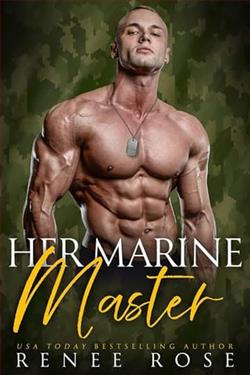Page 82 of So Far Gone
“I think we just did,” said Brian.
The prosecutor told Kinnick that Dean Burris’s trial would probably not begin for at least a year. He’d hired a “constitutional lawyer” out of Michigan who planned to challenge every aspect of the case, beginning with the long-shot theory that the state had no standing to prosecute him for using his Second Amendment–guaranteed gun rights, and arguing that Dean had essentially acted in self-defense against Shane, a man who had asked for Dean’s help in retrieving his wayward wife from a psychedelic music festival in the woods, and then went into a rage, and started attacking him for it. Dean’s lawyer even wanted to depose Bethany about Doug and her past drug use.
“But that won’t work, right?” Kinnick asked. “Blaming the victim?”
“Oh, no, I strongly doubt it,” the prosecutor said. He explained that they were holding accessory charges over Bobby’s head, hoping he’d testify against Dean. “But in these rural communities,” the prosecutor said, “in this atmosphere, you just never know.”
In a photo from the arraignment, which Kinnick looked at over and over, on his new iPhone, Burris looked thin and wan, his suit sleeve pinned to his shoulder where what was left of his right arm had been amputated.
It was one of the hardest adjustments for Kinnick, owning a cell phone again. It was like a nosy neighbor with a constant supply of scary news, a pocketful of drip-drip dread and festering fear. He was glad to be able to call and text Bethany, but the thing was a constant delivery system for terrifying developments from all over the country, from around an overheated, overpopulated planet. Technology, as he saw it,had finally succeeded in shrinking the globe, so much so that every news story felt dangerous and personal, every war a threat to his family, every firestorm, hurricane, and melting ice cap a local disaster, the seas boiling up around them, every cynical political and legal maneuver part of the same rotten fabric—and half the country somehow seeing it exactly the opposite way. He triednotreading the news on his phone, but after so long away, it was impossible, like he’d spent seven years quitting booze and then someone had assigned him his own, pocket-size twenty-four-hour bartender. Carrying around this little harbinger of doom, Kinnick was constantly reminded of the cold epiphany he’d had about the eternal nature of cruelty.
Shane’s funeral was unbearably sad, held near his family’s home in Salem. His parents wanted him buried in the family plot, next to his brother, who had overdosed after two tours in Afghanistan. Bethany, who didn’t have the money for a proper funeral, hadn’t argued with this. During the service, Shane’s parents and his two sisters wouldn’t even look at Bethany, and she suspected they blamedherfor his death, for running off like she had. And sometimes, she told her father, she feared that shewasto blame. (“You know that’s not true,” he told her.) Bethany was a wreck leading up to the service, but after getting the cold shoulder from Shane’s family, Kinnick noticed, his daughter’s back stiffened and she concentrated on consoling the children. Leah cried in short jags, but then would compose herself, pulling away from any arm that settled on her shoulder, including Sluggish Doug, who surprised everyone by coming to the funeral, and promising to be more involved in Leah’s life. Asher cried less than his sister and was happy to have his mother’s arms around him. He had a thousand questions for Kinnick—Do they ever dig up the caskets and use them again? Have they ever accidentally buried someone alive? What will they do when they run out of places to put people?
For months afterward, though, Asher was besieged by nightmares: his ghostly father calling out to him, various monsters and villainschasing him through the woods. He kept asking Kinnick to tell him “exactly what happened” that day, and he said he would never understand why his dad’s friend would just up and shoot him like that. And why bad things had to happen to people anyway.
Bethany told him that bad things didn’thaveto happen, and that most of the time, Asher would find, they didn’t. But when times got tough, like now ... “Well, that’s when we need to be strong. And to take care of each other.” Asher said he would try.
Watching this conversation at the house in West Central Spokane that Kinnick had rented for himself, Bethany, and the kids, Rhys thought his daughter might be the best parent he’d ever seen.
For a while, Leah went into adolescent shutdown mode, just as Bethany had feared, sulking and keeping to herself. She continued her email correspondence with David Jr., with the blessing of Bethany, who thought that since they’d been through this ordeal together, writing to Davy might help her process it. She even agreed that Leah could get a phone on her fourteenth birthday. Things had cooled between Leah and Davy, who talked his parents out of conversion therapy. He and Leah agreed to postpone their betrothal while Davy took a year off school to “figure out who I am.”
Davy’s dad, Leah said, was greatly disturbed by what had happened but was refusing to completely cut ties with the Army of the Lord. In fact, the publicity had only increased church attendance, and, it turned out, people were writing from all over the country to inquire about the Rampart.
Leah refused to go to family therapy with her mom and her brother. “He wasn’t my dad,” she said, adding, “that’s y’all’s grief,” part of a strange new way she’d begun speaking after only two weeks at her new public middle school. One day, not long after that, she told Bethany that she would never go to church ever again.
“I don’t know if I believe in God,” she told her mother.
“Well, that’s understandable,” Bethany said. “But if He does exist, I hope you know that He’ll continue to believe in you.”
Leah rolled her eyes, said, “Ew,” and went to her bedroom to read.
If there was anyone Leahcouldtalk to, it was her grandfather, so long as they stuck to conversations about books. That summer, she helped him get rid of hundreds of his old hardcovers, trading them in at a used bookstore downtown for newer titles, and helping him sort through the dozens of notebooks and journals that he hauled out of the little cinder block house in the woods. At one point, surrounded by the open notebooks, filled with years of his scribblings, Kinnick looked over the rim of his reading glasses and said to Leah, “I don’t think there’s a book here at all.”
“Well,” she said, “maybe there’s a different book.”
This made him smile. “About what?”
“I don’t know,” she said. “Maybe about what to do when the world seems like it’s gone crazy.”
“I’d read that book,” Kinnick said.
A few weeks later, Leah burst through the door and asked Bethany, “Where’s Grandpa?” The Honors English reading list had been handed out at school that day, and she and Rhys spent an hour bent over it, like two old men over a racing form, circling the horses that looked promising.
Kinnick required two surgeries to reconstruct his battered face. His jaw was wired shut for four weeks, and the doctors said that his right eye would forever sag over its repaired socket. He really liked his occupational therapist, though, who shared hilarious TikToks and Instagram posts, insisting that laughter was the best exercise for strengthening facial muscles. Here was the only proper use for this terrible pocket-size anxiety-dealing bartender, Kinnick decided, and he raced home to share the appropriate videos with the kids on his iPhone. “Watch this dog sing ‘Happy Birthday’!”
One day, after dinner, while the kids cleared the table, Bethany put her hand out and touched Rhys’s stitched, stapled, and resculpted face.
“I kind of like it,” she said. “You’re softer now.”
“Like an old catcher’s mitt,” he said.
“Like a pillow,” she said.
“Like mashed potatoes.”
“Like soft-serve ice cream.”
Some nights, he could hear Bethany crying in her bedroom, but he wasn’t sure if he should say anything. The distance between them had narrowed, but he was still conscious of it being there, of her not quite trusting him. And why would she? At night, Bethany went for walks alone along the river. She and Anna took a yoga class together, and she got a part-time job teaching English as a Second Language. Bethany had decided to stay in Spokane, at least for the time being, and she planned to send her résumé out, in the hopes of getting on full-time with the school district. For her birthday, Kinnick bought Bethany an expensive spa day with Anna, including a bottle of champagne.















